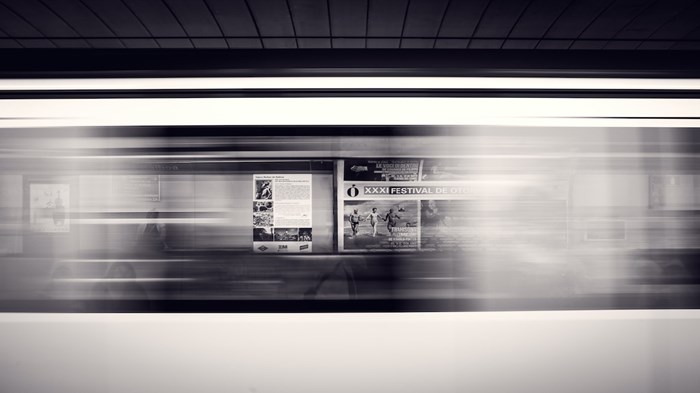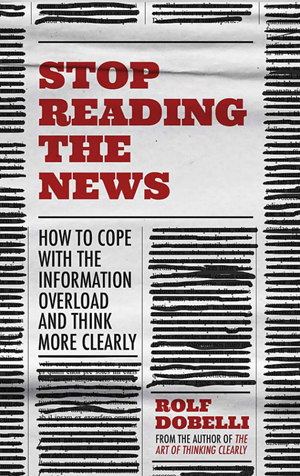News Consumption and Your Health

Journalists have my respect, now and forever. Their professional standards are high, their commitment to the task is serious, and the craft of writing up (or speaking on TV) the news often noteworthy.
The task today is all but impossible with everything controlled more and more by ads, and ads controlled by clicks, and clicks by … well, what provokes and irritates. The profession of newswriting has been compromised by the business of news.
And there’s way way way too much of it today. 24/7 is not possible for newswriters. So, this is not about the journalists.
It’s about the nonsense. It’s not even the NYTimes or National Review, or its editors. It’s Google, it’s Facebook, it’s Instagram, it’s Twitter, it’s these relentless in your face social media giants that promote constant demand and availability and click-bait that grab your attention and their embedded links that keep us spinning in their web.
It’s about advocacy journalism – Fox News, CNN, CNBC, you name them – that no longer cares about information conveyed so the reader or watcher can make a judgment. News that is persuasion is not news reporting. It’s advocacy. No, it’s propaganda pretending to be news.
Very little has suffered more than the news and its journalists because of these social media giants.
I’m reading Rolf Dobelli’s Stop Reading the News: A Manifesto for a Happier, Calmer and Wiser Life, and it is a vigorous challenge to our lifestyle of checking our phones and tablets and computers, our FOMO habits, and our mental addictions to what is not good for us. Relentless “news” that is not really news.
Twitter links.
FB updates.
Who’s doing what?
Social media’s designers have our algorithm’s shaping what we see because what we seem to “like” stimulates and most often not in a good way.
Here’s how Dobelli opens chp 13 (no irony):
Imagine two hypothetical species of animal. The brain of Species A reacts primarily to negative information. The brain of Species B, on the other hand, is more active when receiving positive information. Who has a better life? Species B, of course; while the As are perpetually stressed and unhappy, the Bs enjoy the sunny side of existence. They take pleasure in all the beautiful things they see and hear, and simply laugh off all the negativity. Who willlive longer? Species A, of course. The Bs, enviable as their sunny psychology might be, will be wiped from the gene pool within a few months. Only the As will survive. Survival demands constant wariness; it demands oversensitivity to negative information. We are Species A.
We are Species A. Let’s let that settle into our brains and hearts. Furthermore, he continues, we like the bad over the good!
Bad news is perceived as more relevant than good news. Negative information has twice the impact that positive information does. In psychology, this is called negativity bias, and it can be observed in even one-year-old infants.They respond more sensitively to negative stimuli than to positive ones. Adults are no different. A stock falling by ten per cent makes us twice as unhappy as a stock climbing by ten per cent makes us happy. Negativity bias is innate. The news media hasn’t inculcated into us our weakness for negative information; it simply exploits this weakness in expert fashion, delivering a stream of shocking stories that are tailor-made for our anxious brains.

Who we are and what we are and what gets us going is what the news media knows and aims at, and (a big point in this book) the news isn’t designed to inform but to stimulate, to entertain, to advocate, to get us riled up.
His theory is that you will miss nothing if you completely drop “news.” You’ll find out from someone. Instead, he says we find a better life by reading long form books and magazines.
The news media makes us unhealthy. “The news industry,” Dobelli observes with more than a little directness, “is society’s appendix – permanently inflamed and completely pointless.” He’s not talking new knowledge but the “industry.” Of course we need investigative journalism and what he calls “explanatory journalism,” the well-researched explanation of what’s going on.
He digs deeper:
The news continually stimulates our sympathetic nervous system, a part of our autonomic nervous system. Psychological stressors lead to the release of adrenaline by the hypothalamus. Adrenaline then leads to a rise in cortisol. So, every garish story can lead to the production of this stress hormone. Cortisol floods our bloodstream, weakening the immune system and inhibiting the production of growth hormones. By consuming the news, you’re putting your body under stress. Chronic stress leads to anxiety and digestive and growth problems and leaves us to infection. Other potential side effects of news consumption include panic attacks, aggression, tunnel vision and emotional desensitisation. In short, consuming the news puts your psychological and physical health at risk
This one I’ve heard many times:
According to a study by the American Psychological Association, half of all adults suffer from the symptoms of stress caused by news consumption.
And it’s worse today than ever before. Why?
First, we consume far more news than previously … Second, the news is becoming ever more garish and shocking.
One more time, it’s not good for our health. Go read a book. Take some time to read the whole Bible.
Now we’re in a vicious cycle: consuming the news leads to chronic stress, stress saps willpower, and a lack of willpower makes us more likely to spend longer online, which in turn leads to more stress and further depletes our willpower.
“Less,” he says, “is the new more.”
Jesus Creed is a part of CT's
Blog Forum. Support the work of CT.
Subscribe and get one year free.
The views of the blogger do not necessarily reflect those of Christianity Today.


















